×

Get Email Updates
Subscribe and receive our newsletters to follow the news about our fresh and fantastic products.

I have been producing and designing games for social impact for over two decades, often in the context of youth programming.
Along with Benjamin Stokes and Suzanne Seggerman, I co-founded Games For Change in 2004. Since then I have spoken frequently on and written about social impact games and games-based learning. Some highlights include:
Below are some games I am proud to have been associated with, listed by each organization that made it all possible.
a poignant board game about making memories in museums with your family
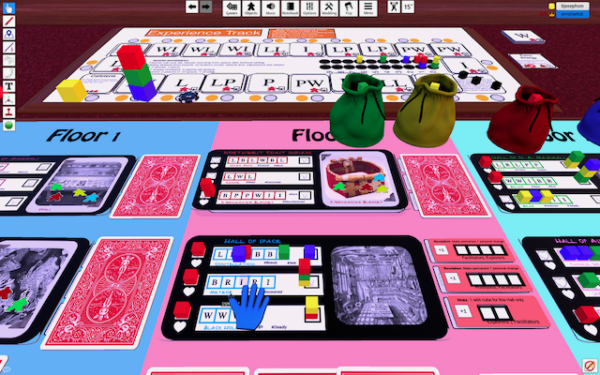
This legacy board game is about being with your family, the awe of museums, and making memories that last a lifetime. The game is also about lifecycles, and how places like museums can make physical markers of collective memories. In Family Album, you and your “siblings” will take a walk back through trips from your family’s past. As you reconstruct each visit’s album (aka, each game), your goal is to collect the strongest memories along the way.
If you are interested in participating in a playtest, please contact me.
a card game to welcome our future A.I. overlords
Uncannny Valley is a card game in which all of the art was produced in collaboration with an A.I.-assisted image generating tool (Midjourney). The game both uses A.I. art and is about what it means for this stage of humanity to be collaborating with computers.
Check out the Instagram account or the Facebook page to examples of the art and follow the project.
For the 4th generation of cards, these are the 6 categories and the 5 options for each one. Here`s how it works - pick ANY two cards below. Each will have something from all 6 categories. There will be one and ONLY one item in a category that is shared. If each has a car, then nothing else will be in common. If each has a cat, nothing else will be in common.
Try it out!
At the same time, there is one exception. There are TWINS! ALL six category selections are same. Both, for example, have a donut with a dog playing guitar in the rain, etc.
Good luck!

On this card, I like the sunset in the desert in the background - and then you see for some reason the concept is ALSO the background for the computer. Coincidence? Or just... uncanny?
Would you eat that donut?
#midjourney #midjourneyartwork #newmediaart #CardGame #carddesign #DessertDonut

I loved this comment in Zoom (when I virtually presented today at today`s NYU Teaching & Learning with Generative AI Virtual Symposium)! I presented a few educational tools I`ve been using in the last year and, of course, I introduced Uncannny Valley and expected everyone to play along with me.
#ailiteracy #AIeducation #cardgame

With this card, I love how it is both idyllic and ominous. It looks like two kids playing pirates at the seaside, and yet they seem to have a real robot that has a battleship for a head. Is that their boat in the distance or should they stop posing for this photo (?) to prepare for their attackers? I especially love the watercolor treatment.
#midjourney #midjourneyartwork #newmediaart #CardGame #carddesign #PiratesatPlay

So lovely. So peaceful. Then I noticed the fingers...
And is the main figure behind the grid or in front of it?
#midjourney #midjourneyartwork #newmediaart #CardGame #carddesign #UnintentionalMCEscher

Is this a very short pirate or a child pirate with a fake mustache?
#midjourney #midjourneyartwork #newmediaart #CardGame #carddesign #RainingUmbrella

Kids, do NOT ride your bicycle like this. In fact, perhaps just put down the guitar next time you want to go for a ride...
#midjourney #midjourneyartwork #newmediaart #CardGame #carddesign #flowinghair

Own guitarist pining for misshaped strawberries on a donut table. What`s not to love.
Let`s not even get into those broccoli trees!
I think part of what this project might be about it that generative AIs are being asked to reproduce the real world without understanding it. So when asked to reproduce the world with increasingly complex and frankly bizarre constraints, it is doing what it was asked to do, creating a world that NEVER existed. So maybe the uncanny valley lies less in what it produces than in the nature of my initial prompt!
#midjourney #midjourneyartwork #newmediaart #CardGame #carddesign #DonutTablewithGuitaristOwl

If you are interested in participating in a playtest, please contact me.
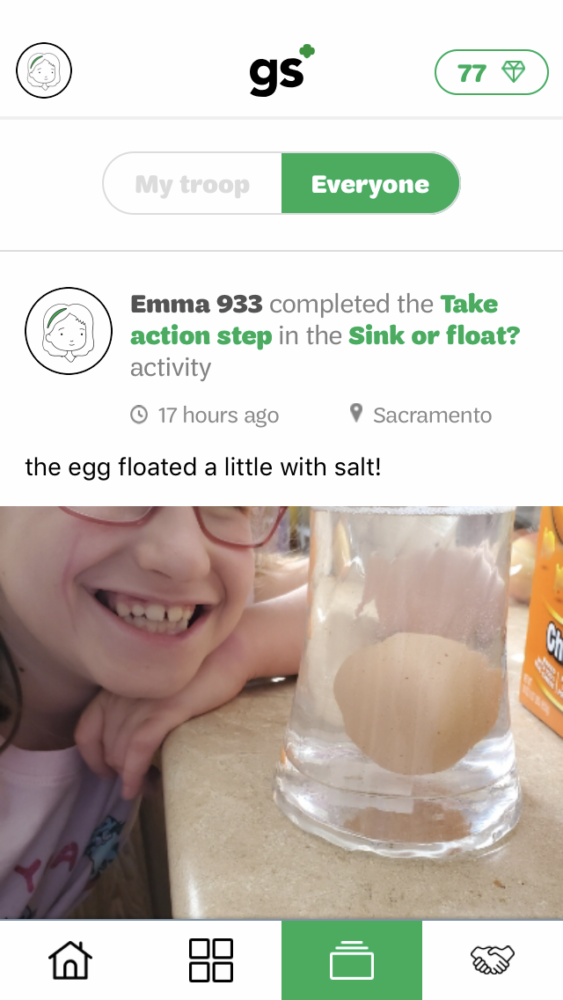
A mobile app for bringing Girl Scouting home through hands-on STEM activities, featuring content adapted from partners like the Smithsonian, NASA, PBS Digital Studios, and Stanford.
A facilitated role playing adventure in which visitors used bone models, real and virtual tools of science, and the Hall of Human Origins to investigate a Neanderthal death.
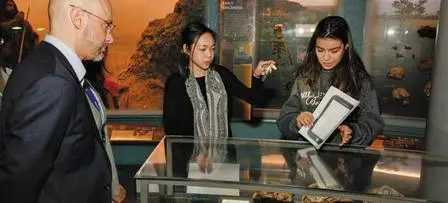
Read more here or dig deeper within the chapter on it within my book Making Dinosaurs Dance.
MicroRangers was a museum-wide AR mobile game that invited visitors to shrink to the microscopic level and enter exhibits to help scientists fight the sixth extinction.
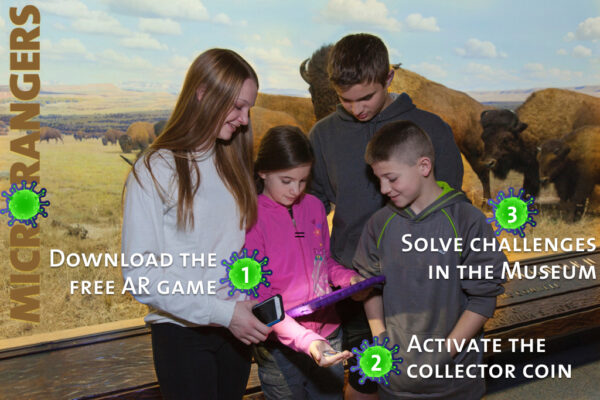
You can watch a walkthrough here or or dig deeper within the chapter on it within my book Making Dinosaurs Dance.
Escape the Planet: an astro-themed escape room using mixed reality. You can read more about it here.
Galactic Golf: a Hololens-powered Martian golfing experience using astro data.
Gutsy: an exhibit-related card game, with over 2,000 sold in the store, developed with the exhibit curator, about microbe biodiversity. You can still download here to print and play.
Killer Snails: a deck-building card game inspired by original Museum research that raised $25,000 on Kickstarter and won a Federal SBIR grant. You can still buy copies from here.
Pterosaurs: the Pterosaurs card game was an exhibit-related product sold in the store and shared online, with an AR component that sent the reptiles soaring. You can still download here to print and play.
The Virtual World Programs: a set of offerings throughout the year which used game or data visualization engines as the primary educational tool, such as exploring undersea life during the Cretaceous period using Second Life, global food distribution networks through Minecraft, and investigating what happened to the Neanderthals through interactive virtual dioramas in Skyrim.
The #scienceFTW program taught science content by pairing youth with Museum scientists to play and critique science-based games.
a web-based game for players to manage a family in rural Haiti, keeping all five family members alive while improving their quality of life through access to education and health care
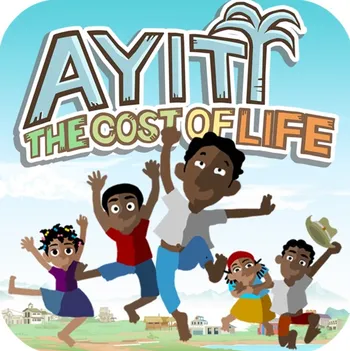
Created by Global Kids and Gamelab, with high school students.
This is a good analysis of the game tropes here and there is a great walkthrough with player’s debating strategies here.
a web-based game focused on how local heroes emerge during disasters and educating its players about the essentials of disaster readiness
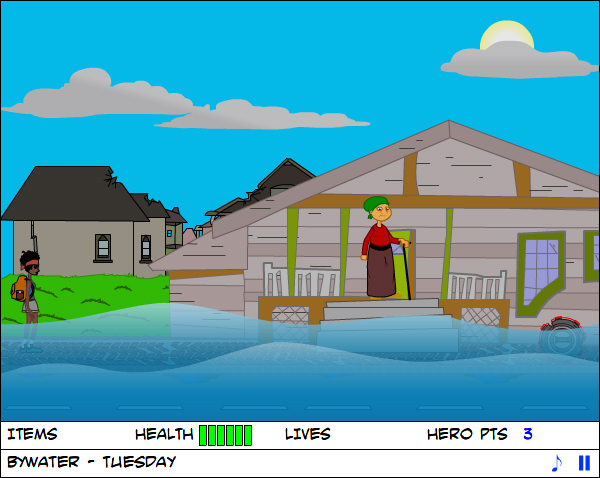
Created by Global Kids and Gamepill, with high school students.
Witness to History: a summer program from Global Kids with the U. S. Holocaust Memorial Museum in which teams designed a virtual museum in a virtual world about witnesses to genocide.
Virtual Video Project: an afterschool program in which youth created animated videos using virtual worlds (known as machinima) about global human rights issues.
HungerCraft: an educational mash-up of the popular Hunger Game’s narrative with the game Minecraft to explore global human rights.
Race to the White House: a civic-oriented gaming program with the Brooklyn Public Library tied to the 2012 Presidential campaigns using geocaches. Teens placed a total of 48 geocaching travel bugs all over Queens, Manhattan and Brooklyn associated with topics they felt were important to society and should be discussed in the 2012 Presidential Election campaigns. More than a decade later, many were still traveling the world; one traveled more than 62,000 miles. With a geocaching account, they can all be viewed here.
NYC Haunts: a series of youth-led geolocative mobile games exploring local history and contemporary issues for the New York City Public Library across three boroughs.